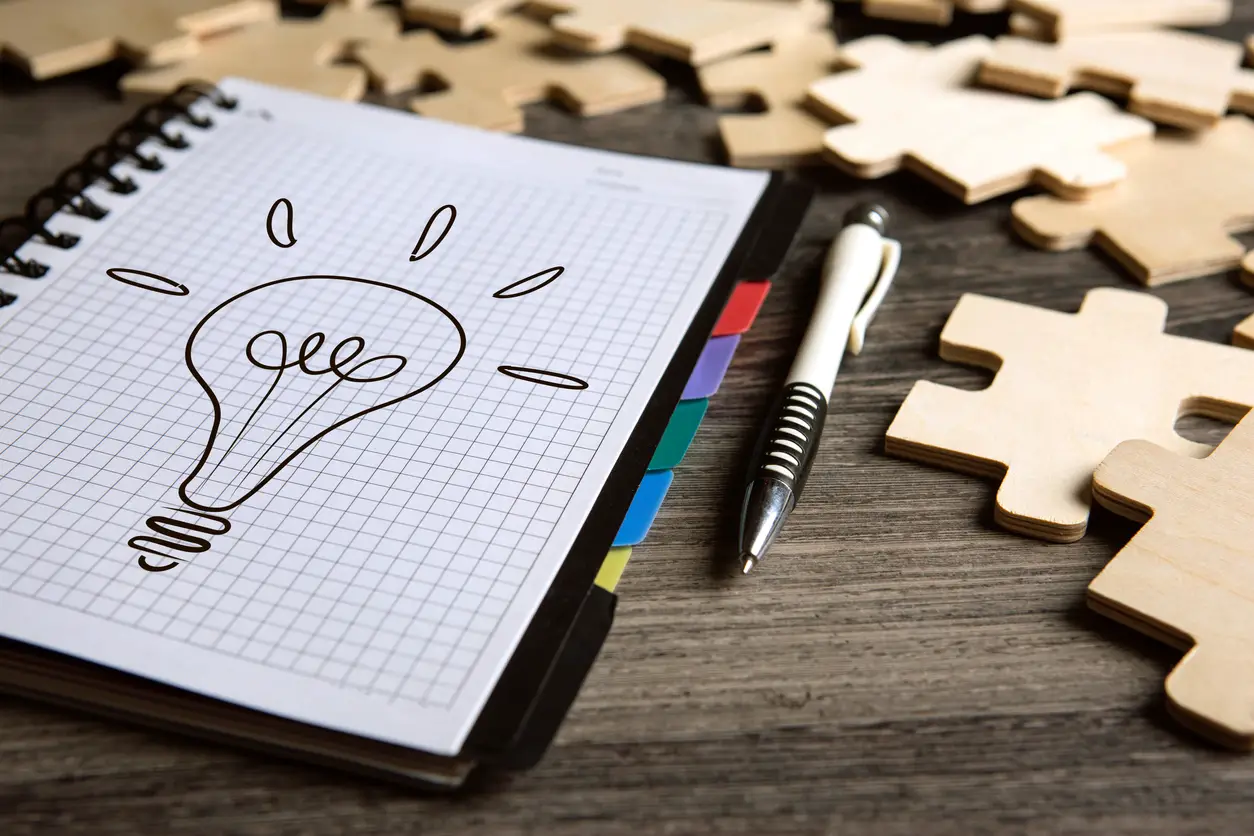Critical thinking brain teasers are an engaging way to challenge one’s cognitive abilities and improve problem-solving skills. These mind-bending puzzles come in various forms, such as logic puzzles, visual puzzles, and rebus puzzles, each designed to test one’s ability to analyze, evaluate, and think outside the box. Incorporating critical thinking brain teasers into daily routines or educational settings helps develop key cognitive skills, fostering creativity and enhancing overall intellectual capacity.
The role of critical thinking in problem-solving cannot be overstated, as it enables individuals to approach complex issues rationally, systematically, and strategically. By using brain teasers specifically designed to enhance critical thinking skills, individuals can sharpen their analytical prowess and improve their decision-making abilities in various life situations. Engaging in educational games and worksheets that incorporate brain teasers can be an effective way to promote critical thinking and create a lifelong curiosity for learning.
Key Takeaways
- Critical thinking brain teasers help improve cognitive skills and problem-solving abilities.
- These puzzles come in various forms, such as logic puzzles and visual puzzles, each challenging one’s analytical prowess.
- Incorporating brain teasers into educational settings can foster creativity and enhance intellectual capacities.
Understanding Critical Thinking
Critical thinking is a vital skill for obtaining knowledge and making well-informed decisions. It involves the objective analysis and evaluation of an issue, allowing individuals to form sound judgments and actions. When thinking critically, people actively and skillfully assess, synthesize, and evaluate information from various sources, including observation, knowledge, reflection, and conversations. This process helps to strengthen one’s educational foundation and promotes problem-solving capabilities.
A significant aspect of critical thinking is the ability to approach problems from multiple angles. This skill allows individuals to consider various perspectives, enhancing the quality and accuracy of their judgments. It also aids in identifying biases and misleading information, fostering an open and clear-minded approach to complex issues.
To develop and maintain critical thinking skills, it is essential to engage in a variety of brain-teasing activities, such as puzzles and riddles. These challenges facilitate the refinement of one’s logical reasoning, pattern recognition, and analytical abilities. Additionally, the practice of sharing and discussing these brain teasers with others helps to refine communication skills and exposes individuals to new perspectives and ideas.
In the realm of education, critical thinking is crucial for promoting independent thought and fostering a deeper understanding of complex topics. Educators can encourage the development of these skills by incorporating various critical thinking activities into lesson plans, such as debates, analysis of case studies, and group problem-solving exercises. This not only helps students become more insightful individuals but also equips them with the tools necessary for lifelong learning and adaptation in an ever-changing world.
By nurturing a confident, knowledgeable, and neutral approach to learning, critical thinking not only enables personal growth but also contributes to a more informed and open-minded society.
Role of Critical Thinking in Problem-Solving
Critical thinking plays a crucial role in developing effective problem-solving skills. It enables individuals to analyze situations, gather necessary information, and evaluate different solutions objectively. Employing critical thinking skills leads to informed decision-making, as individuals learn to think critically about every step they take.
Developing problem-solving skills begins with understanding the importance of reasoning and logic. Critical thinking encourages individuals to avoid relying solely on intuition and assumptions. Instead, they should seek evidence, identify biases, and consider various perspectives before reaching a conclusion.
Brain teasers are an excellent way to build critical thinking skills. These cognitive exercises require individuals to think outside the box, analyze patterns, and draw logical conclusions. By engaging in brain teasers and similar activities, people can improve their problem-solving and decision-making abilities. Using brain teasers to build critical thinking skills enhances mental agility and adaptability, as individuals must consider multiple approaches to reach a solution.
Critical thinking is essential not only for personal growth but also for the development of a dynamic society. As people learn to make better decisions, they become more effective contributors to the community. It is vital to foster an environment that encourages critical thinking, empowering individuals to engage in thoughtful and informed decision-making. In this way, our collective problem-solving capacity is strengthened, and we are better equipped to tackle complex, real-world challenges together.
Brain teasers play a significant role in developing and maintaining cognitive skills. They come in various forms, ranging from simple puzzles that provide a sense of joy to more hard challenges that require extensive critical thinking. These mind-boggling exercises often require creativity, analytical thinking, and logical reasoning to solve.
The benefits of brain teasers are evident in different areas of life. They not only maintain mental sharpness but also help in building critical thinking skills. These skills enable individuals to tackle complex problems, analyze data, and formulate well-informed decisions. Engaging in critical thinking brain teasers provides opportunities for personal growth and success in various spheres.
Moreover, brain teasers encourage a healthier lifestyle by keeping the brain active. Just as physical exercise benefits the body, mental exercise enhances cognitive function and prevents age-related decline. Researchers have found that regularly solving puzzles and brain teasers can boost memory and cognitive abilities, leading to mental well-being.
In summary, brain teasers offer a range of advantages, from improving critical thinking skills to providing mental stimulation and enjoyment. By incorporating these engaging exercises into daily routines, individuals can enhance their cognitive abilities and contribute to overall personal growth and success.
Logic Puzzles
Logic puzzles are a type of puzzle that requires the use of logic skills to solve. These puzzles often present a scenario with incomplete information, and the solver must use reasoning to fill in the gaps and arrive at the correct solution. They are an excellent way to exercise the mind and improve critical thinking abilities.
One popular type of logic puzzle is the grid-based puzzle, where solvers are given a series of clues and must use deduction to correctly place items in a grid according to the constraints imposed. The more clues provided in the puzzle, the easier it is to solve, and the better the puzzle is at teaching logic skills.
Sudoku is another popular type of logic puzzle that challenges a player’s logic and deduction skills. In a Sudoku puzzle, the player is presented with a partially filled 9×9 grid, with each row, column, and 3×3 subgrid containing the numbers 1 to 9 exactly once. The objective is to fill in the remaining cells in the grid using the provided information and the rules of the game, without guessing.
When solving logic puzzles, it is important to avoid making assumptions or jumping to conclusions. Instead, carefully analyze the information provided and use a methodical approach to deducing the relevant facts. This may involve breaking the puzzle down into smaller parts or using a process of elimination to remove possibilities and narrow down the potential solutions.
By regularly engaging with logic puzzles, such as Sudoku or grid-based puzzles, people can develop and strengthen their logical reasoning skills, which are valuable in many aspects of life, from decision making to problem-solving. These cognitive challenges also provide a fun, engaging way to stimulate the mind and keep it sharp.
Brain teasers offer a fun and engaging way to sharpen cognitive skills and boost creativity. They are designed to challenge the way individuals think, analyze information, and solve problems. Utilizing brain teasers as a part of one’s daily routine can foster intellectual growth, improve memory, and stimulate new ideas.
One of the most significant benefits of engaging in brain teasers is that they encourage critical thinking. This involves assessing assumptions, evaluating evidence, and formulating well-founded conclusions. By frequently practicing such exercises, individuals can strengthen their cognitive skills and enhance problem-solving abilities.
Another substantial advantage provided by brain teasers is the stimulation of creativity. Creative thinking is vital in generating innovative ideas and finding unique solutions to challenges. Brain teasers often require the ability to think outside the box, stretching the mind to come up with unconventional approaches.
Moreover, brain teasers can be an excellent tool for mental training, keeping the mind sharp and focused. They can help in reducing cognitive decline associated with age, and even have the potential to improve productivity in various aspects of life. By maintaining an active mind, individuals are more likely to excel in their personal and professional pursuits.
In conclusion, incorporating brain teasers into daily routines can significantly enhance cognitive skills and creativity. By challenging the thought process and requiring innovative problem-solving approaches, these exercises can provide both mental stimulation and personal growth. Thus, brain teasers can be a valuable addition to anyone seeking to improve their thinking abilities, foster creativity, and achieve success in various areas of life.
Critical thinking brain teasers are puzzles designed to challenge a person’s mental acuity, requiring them to think outside the box and approach problems in a non-straightforward manner. These brain teasers test a person’s ability to analyze situations, identify patterns, and make logical deductions based on the information provided.
One type of critical thinking brain teaser involves a match-stick puzzle. In these puzzles, participants are given a specific number of matchsticks, and the objective is to rearrange them to form a new shape only by moving the specified number of matchsticks. These puzzles require a good spatial sense, attention to detail, and an understanding of geometric principles.
Another type of critical thinking brain teaser is a riddle or lateral thinking puzzle. In these puzzles, participants are presented with a problem or scenario that appears simple at first but requires unexpected solutions to solve. An example of this type of puzzle is the well-known “river crossing” problem, where participants must help a farmer, a fox, a chicken, and a bag of grain cross a river with a small boat that can only carry a limited number of passengers. The challenge lies in finding a way to get all of the items across without allowing the fox to eat the chicken or the chicken to eat the grain.
Word-based brain teasers can also be excellent tools for developing critical thinking skills. For example, participants might be asked to find words that can be formed by rearranging the letters in a given set of words, such as “tail,” “shed,” and “height.” The answers might include words such as “light” and “shield.” These puzzles pose a linguistic challenge that requires participants to think about words in a new and unfamiliar context.
Another category of critical thinking brain teasers includes logic puzzles and grid-based challenges, where participants must deduce relationships between objects, people, or events based on a set of clues. For example, in a puzzle involving five houses of different heights and colors, participants must determine which house is the tallest and who lives in each house.
Overall, critical thinking brain teasers help sharpen problem-solving and analytical skills, featuring a variety of challenges such as match-stick puzzles, riddles, word problems, and logic puzzles. Participants can improve their critical thinking abilities by regularly engaging with these types of brain teasers.
Solving brain teasers can be a fun and challenging way to improve critical thinking skills. To effectively solve these puzzles, one should approach them with a systematic and organized approach. Here are some strategies that can help in finding the solution to various brain teasers.
First, take the time to carefully read and understand the information provided in the brain teaser. Identify the key details and relevant information that will help in reaching the solution. It is essential to have a clear understanding of the problem before diving into solving it.
Next, apply logical reasoning to assess the information and make connections between the given details. This involves breaking down the problem into smaller components, analyzing each part separately, and identifying patterns or relationships that might lead to the solution.
Additionally, it is essential to stay organized and keep track of the information that has been processed. This can be achieved by jotting down notes, creating tables, or using visual aids such as diagrams. Organizing information in this way can help clarify the problem and make it easier to find the correct answer.
Another useful strategy is to approach the brain teaser from different angles or perspectives. Explore multiple possibilities and consider alternative interpretations of the information provided. This can help in identifying potential solutions that might not have been apparent at first glance.
Lastly, it’s crucial to remain persistent and patient while solving brain teasers. Some puzzles might take a few minutes, while others could require much longer to solve. Remember that the goal of these teasers is not only to find the solution but also to develop critical thinking and reasoning skills in the process.
By using these strategies and maintaining a confident, knowledgeable, and neutral mindset, one can increase their chances of success in solving brain teasers. The key is to be clear in your approach and maintain focus on the task at hand.
Brain teasers offer a wide range of benefits in the real world. They not only provide entertainment but also enhance your cognitive abilities in various aspects of life.
One of the most significant benefits of brain teasers is the improvement of critical thinking skills. Engaging in these activities forces you to think outside the box, analyze situations from different angles, and come up with creative solutions. This advanced reasoning ability is applicable to many real-world scenarios, such as problem-solving in the workplace or making informed decisions in daily life.
Logical skills are also enhanced through brain teaser exercises, as many of these puzzles require the use of deductive reasoning and pattern recognition. Developing a strong foundation in logic can aid individuals in fields such as mathematics, computer programming, and engineering, where a keen sense of order and methodical thinking is crucial.
Furthermore, brain teasers often require a strong command of language skills. Puzzles based on wordplay, riddles, or anagrams can be particularly beneficial for expanding vocabulary, improving reading comprehension, and honing language abilities. This expertise in language assists you in more effective communication, both written and verbal, in various personal and professional settings.
In summary, brain teasers offer numerous advantages in the real world by influencing the development of critical thinking, logic, and language skills. Engaging in these challenging activities can lead to more informed decision-making, better problem-solving abilities, and enhanced communication prowess.
Visual Puzzles and Rebus Puzzles
Visual puzzles and rebus puzzles are excellent tools for enhancing critical thinking skills. These puzzles often require a person to think more abstractly and use their cognitive abilities to solve them.
Visual puzzles are logic or reasoning problems that are expressed and solved using drawings or images. They can be found in various forms, such as finding differences between two pictures, identifying hidden objects in a scene, or determining the number of geometrical shapes in a given pattern. Some popular examples of visual puzzles are mentioned in this article titled “Visual Puzzles & Brain Teasers That Will Challenge Your Mind.”
Rebus puzzles, on the other hand, use a combination of images, symbols, or letters to represent words or phrases. These puzzles force a person to think beyond literal interpretations and decipher the intended message. Rebus puzzles can be simple or complex, depending on the arrangement and combination of the elements. For example, the phrase “Green with envy” could be represented by a green-colored word “WITH” placed between the word “GREEN” and a picture of an envious facial expression. You can find more examples and challenges in this list of “20 Rebus Puzzles (with Answers)” or this collection of “25 Rebus Puzzles (With Answers!).”
These types of puzzles are not only enjoyable; they also help develop critical thinking, problem-solving, and language skills. Visual puzzles improve spatial reasoning and pattern recognition, whereas rebus puzzles strengthen the understanding and interpretation of common words and phrases. Furthermore, these puzzles can be used in educational settings, as demonstrated by these “10 Teacher-Tested Visual Brain Teasers” for classroom use.
In conclusion, both visual puzzles and rebus puzzles are valuable tools for exercising critical thinking and cognitive skills. These challenges offer an engaging and entertaining way to promote mental agility while enhancing language and problem-solving abilities.
Educational Games and Worksheets
Educational games and worksheets are essential tools for fostering critical thinking skills in students. These activities not only make learning more engaging but also help improve memory, concentration, and problem-solving abilities. Teachers often incorporate a variety of brain teasers and puzzles in their lesson plans to develop these skills.
One popular approach to incorporating brain teasers in education is through printable worksheets. These worksheets may contain riddles, anagrams, connected squares, mazes, and other challenging exercises designed to stimulate cognitive development. Teachers can find a variety of free brain teaser worksheets online for use in the classroom or as homework assignments.
In addition to worksheets, teachers may also utilize visual brain teasers in their lessons. These activities encourage students to use critical thinking skills by solving problems through visual cues and patterns. This engaging form of game-based learning can be a fun way to develop logical thinking and problem-solving abilities among students.
Interactive educational games, such as online quizzes, can also help improve critical thinking skills. These activities are often timed, providing students with a fun challenge and encouraging quick thinking. Incorporating gaming elements into education keeps students entertained and motivated while they develop essential cognitive abilities.
By incorporating brain teasers, puzzles, and educational games into their lessons and worksheets, teachers can provide students with opportunities to develop their critical thinking abilities. These activities make education more interactive and enjoyable while promoting essential cognitive skills that students will use throughout their lives.
Conclusion
Engaging in brain teasers is a valuable activity to develop and improve critical thinking abilities. They offer a way to sharpen the mind, making it more efficient and effective when facing complex challenges. Examples of such brain teasers can be found on websites like gcfglobal and Psychology Today.
Brain teasers come in various forms, such as riddles, puzzles, and lateral thinking problems. When individuals challenge themselves with these activities, they train their minds to process information creatively, utilize logic, and make connections between seemingly unrelated ideas. A wide range of brain teasers can be found in sources like Reader’s Digest and Parade.
In conclusion, incorporating brain teasers into one’s routine can have a positive impact on critical thinking skills, enhancing performance in various aspects of life. It’s important to choose brain teasers that are both engaging and challenging to ensure the most significant benefits and progress.
Frequently Asked Questions
What is half of 2+2?
The first step in solving this is understanding that the equation should be read as “half of (2+2).” In this case, you have to perform the addition first: 2+2 equals 4. Now, find half of 4, which equals 2. Therefore, half of 2+2 is 2.
Which tire doesn’t move when a car takes a left turn?
This is a tricky question that requires critical thinking. The answer lies in understanding how a car moves when making a turn. In reality, all four tires rotate as the car takes a left turn. However, the inside tires move less distance, while the outside tires travel a greater distance to make the turn.
You walk into a room with one match, a stove, a candle, and a fireplace; which do you light first?
This brain teaser is designed to test your problem-solving skills and careful reading. The answer is simple: before lighting any of these items, you must light the match first.
A man gave one of his three children one coin each. How many coins are left?
To solve this, it’s essential to realize that the man has three children and gave each of them one coin. Therefore, all three of the coins are given away, and none are left.
What is full of holes but still holds water?
The answer to this riddle is a sponge. Even though a sponge has numerous holes, it can still hold and absorb water. This brain teaser tests your ability to think creatively and outside the box.
What word becomes shorter when you add two letters to it?
This brain teaser asks you to add two letters to a word, making it shorter in length. The answer is the word “short.” When you add the letters “er” to the end, it becomes “shorter.”





